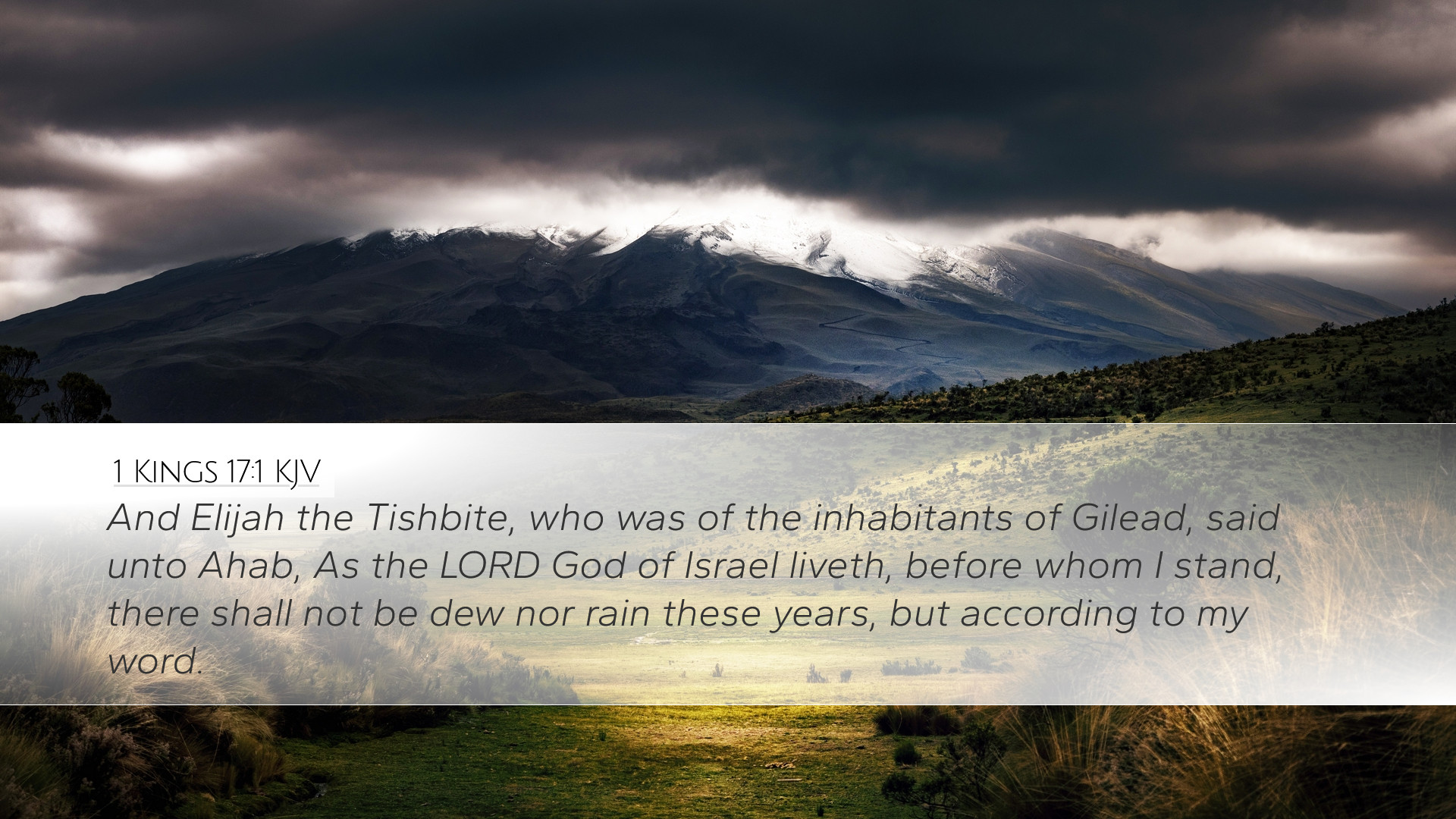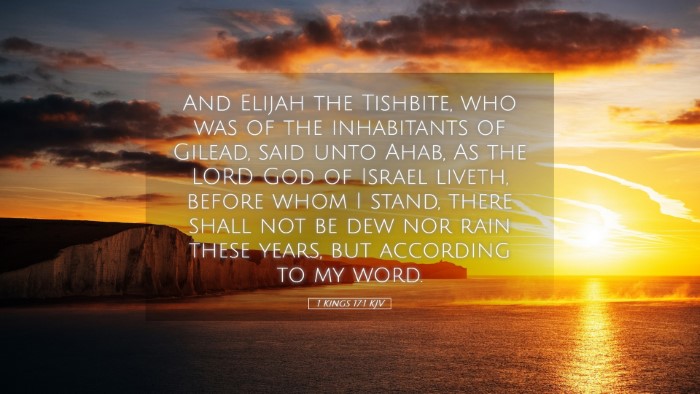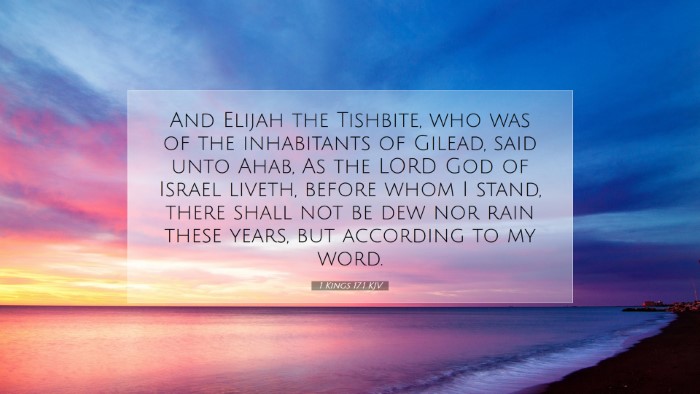Commentary on 1 Kings 17:1
Verse Context: 1 Kings 17:1 states, “And Elijah the Tishbite, of the inhabitants of Gilead, said to Ahab, ‘As the LORD God of Israel lives, before whom I stand, there shall not be dew nor rain these years, except at my word.’” This verse introduces Elijah, one of the most significant prophets in the Old Testament, during a period of great apostasy in Israel.
Introduction to Elijah
Elijah, the Tishbite, symbolizes a voice of opposition to the corruption flourishing in Israel under King Ahab's reign. As a prophet, he stands as a divine messenger, challenging both the king and the people to return to faithfulness in covenant with Yahweh.
The Significance of "As the LORD God of Israel Lives"
The phrase “As the LORD God of Israel lives” is a potent declaration of faith that underscores Elijah's conviction. It asserts Yahweh’s sovereignty and existence amidst the rampant idolatry of Baal worship promoted by Ahab and Jezebel.
- Emphasis on Divine Authority: Elijah’s statement ties his prophetic authority directly to the living God, contrasting the impotence of Baal, whom the Israelites had begun to worship.
- Call to Accountability: By invoking God's name, Elijah summons Ahab and Israel to recognize their disregard for the covenant and to understand the gravity of the coming drought as a judgment on their idolatry.
The Role of the Prophet
Elijah's role as a prophet is highlighted here. His proclamation of a drought signifies a direct act of God’s judgment. This signifies several important themes:
- Intercession and Representation: The prophet acts as a mediator between God and the people, embodying the distress of God’s heart over their sinfulness.
- Prophetic Challenge: Elijah’s proclamation serves not only as a warning but a challenge to Ahab's authority and the worship of false gods.
- Preparation for Repentance: The drought functions as a divine instrument intended to lead the people toward repentance and a renewed awareness of God's power.
The Drought as Divine Judgment
The declaration of drought is significant in that it directly confronts the worship of Baal, who was falsely regarded as the god of rain and fertility. Thus, God’s withholding of rain serves a dual purpose:
- Judgment: It acts as a tangible sign of judgment against Israel's infidelity.
- Correction: It provides an opportunity for the people to turn back to Yahweh, who alone holds authority over the natural order.
Lessons for Contemporary Believers
Modern readers of this passage can draw multiple lessons:
- The Weight of Responsibility: Believers today must recognize the weight of speaking God’s truth and understand the implications of living faithfully in the face of cultural opposition.
- Trust in God’s Sovereignty: The assurance of God's sovereignty invites believers to trust Him in times of spiritual drought or societal turmoil.
- Challenges to Faith: The encounter between Elijah and Ahab serves as a reminder that the battle against spiritual apathy and idolatry is ongoing; it requires vigilance and courage.
Conclusion
1 Kings 17:1 not only introduces the fiery prophet Elijah but also encapsulates the overarching narrative of God’s confrontation with sin. Through Elijah's bold proclamation, the text calls its readers—be they pastors, students, theologians, or scholars—to reflect on their role in upholding the truth of God amidst a culture that often marginalizes divine authority. The passage invites an exploration of faithfulness, accountability, and the call to repentance, timeless themes that resonate deeply within a contemporary context.


